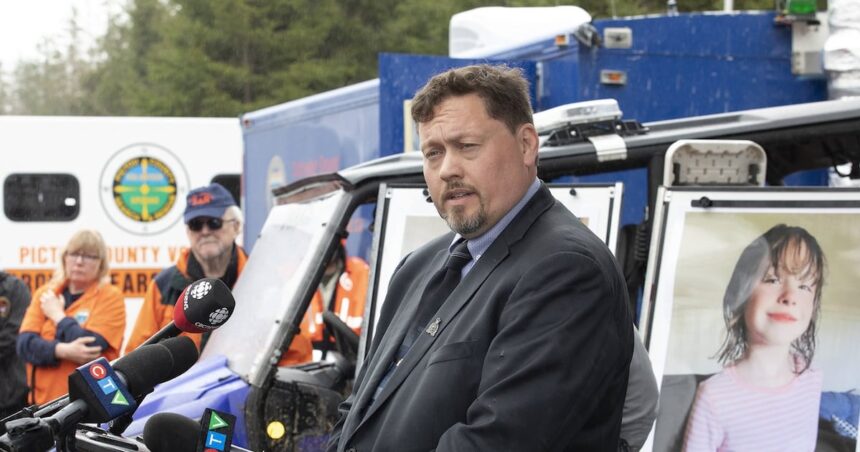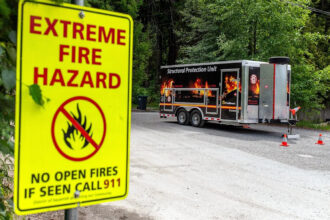The desperate search for two young children missing in rural Nova Scotia has entered its third week, with authorities now expanding their efforts across multiple counties while family members cling to diminishing hope. Six-year-old Ellie and four-year-old Jacob Stewart were last seen playing near their grandmother’s property in Waterville, Kings County, on April 17—a disappearance that has mobilized one of the largest search operations in the province’s recent history.
“Every passing day becomes more challenging, but we refuse to give up,” said RCMP Superintendent Mark Davidson during yesterday’s press briefing at the command center established in Kentville. “We’re utilizing every resource available to us, including specialized canine units, aerial surveillance, and ground search teams covering increasingly difficult terrain.”
The search initially focused on the densely wooded areas surrounding the grandmother’s 14-acre property, but has since expanded to neighboring Annapolis and Hants counties after several reported sightings proved inconclusive. The children were reportedly wearing light jackets unsuitable for the unusually cold spring temperatures that have persisted throughout the search period.
Community response has been overwhelming, with over 700 volunteers registering to assist professional search teams. Local restaurants have provided meals around the clock for searchers, while area businesses have donated equipment ranging from thermal imaging cameras to all-terrain vehicles.
“This has touched everyone in our community,” said Sarah MacKenzie, who organized a volunteer coordination center at the Waterville Community Hall. “We’ve had people taking time off work, driving hours from Halifax and beyond just to help search for a single day. The commitment has been remarkable.”
The children’s parents, Thomas and Rebecca Stewart, made an emotional appeal yesterday, their voices breaking as they addressed potential witnesses directly through local media. “If anyone has seen anything, no matter how insignificant it might seem, please come forward,” pleaded Rebecca Stewart. “Every piece of information could be what brings Ellie and Jacob home to us.”
The RCMP has established a dedicated tip line and is actively investigating several theories, though officials remain tight-lipped about specific leads. Social media groups dedicated to the search have attracted thousands of members, sharing information and organizing community searches in areas not covered by official teams.
Meanwhile, child psychology experts have expressed concerns about the children’s well-being in the extended wilderness exposure. Dr. Martin Greer, a pediatric specialist consulting with search authorities, noted that “children can demonstrate remarkable resilience in crisis situations, but factors including exposure, dehydration, and psychological distress become increasingly concerning as time passes.”
Weather conditions have complicated search efforts, with intermittent rain and near-freezing overnight temperatures challenging both professional and volunteer searchers. Despite these obstacles, operations have continued without interruption, with thermal imaging drones deployed during nighttime hours.
As the search enters its twenty-second day, authorities face difficult questions about how long the intensive operation can be maintained at current levels. However, Superintendent Davidson emphasized their unwavering commitment: “We will continue searching with every resource at our disposal until we find answers. These children deserve nothing less than our absolute dedication.”
The case has prompted renewed discussions about rural safety protocols and supervision requirements for young children. How might communities balance the freedom of rural childhood experiences with necessary safety measures to prevent similar heartbreaking situations in the future?
For continuing updates on this developing story, visit CO24 News or our Canada News section.

























